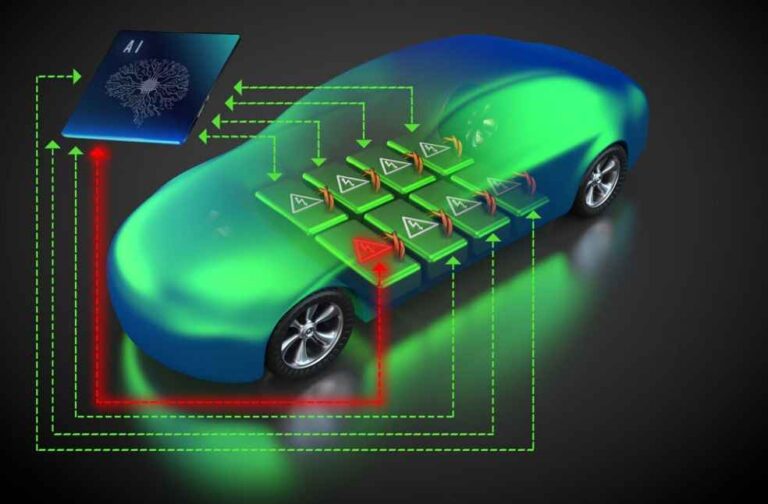Electric vehicles (EVs) represent a significant step forward in reducing global carbon emissions, with batteries playing a central role in their operation and efficiency. The integration of Artificial Intelligence (AI) into the development and management of EV batteries is poised to revolutionize this sector by enhancing battery life, improving charging times, and optimizing energy usage.
Key Areas of AI Application:
- Design Optimization: AI algorithms can analyze vast amounts of data to optimize the design of EV batteries, improving their energy density, lifespan, and charging speed. This can lead to lighter, more efficient batteries with longer ranges.
- Manufacturing Efficiency: AI-powered systems can monitor and optimize the manufacturing process, ensuring consistent quality, reducing defects, and lowering production costs.
- Battery Management Systems (BMS): AI algorithms in BMS can monitor battery health, predict potential failures, and optimize charging and discharging cycles, leading to improved battery lifespan and performance.
- Charging Optimization: AI-powered charging stations can analyze usage patterns, optimize charging schedules, and predict energy demand, leading to more efficient use of charging infrastructure and reduced stress on the power grid.

Benefits of AI-Powered EV Batteries:
- Increased Range: Optimized battery design and management can lead to significant increases in the driving range of EVs, making them more practical for long-distance travel.
- Faster Charging: AI algorithms can optimize charging protocols, enabling faster charging times and reducing the inconvenience of waiting for EVs to charge.
- Improved Safety: AI-powered BMS can monitor battery health in real-time, detecting potential issues early and preventing catastrophic failures.
- Lower Costs: AI can streamline manufacturing processes, reduce material waste, and optimize battery performance, leading to lower production and maintenance costs.
- Enhanced Sustainability: AI-powered battery recycling processes can recover valuable materials from old batteries, reducing environmental impact and promoting a circular economy.
Current Developments:

Several companies and research institutions are actively developing AI-powered EV batteries. For instance, Chemix, a startup, has secured funding to scale its AI-driven battery design technology. Monolith AI is using AI to optimize battery testing and development, while other companies are exploring AI-powered battery management systems for improved performance and safety.
The Future of AI-Powered EV Batteries:
The integration of AI into EV battery technology is still in its early stages, but it holds immense promise for the future. As AI algorithms become more sophisticated and data collection expands, we can expect further advancements in battery performance, safety, and sustainability. This will accelerate the adoption of EVs, contributing to a cleaner and more sustainable transportation system.
MOST READ | China’s Automobile Exports Surge; Exploring the Reasons





